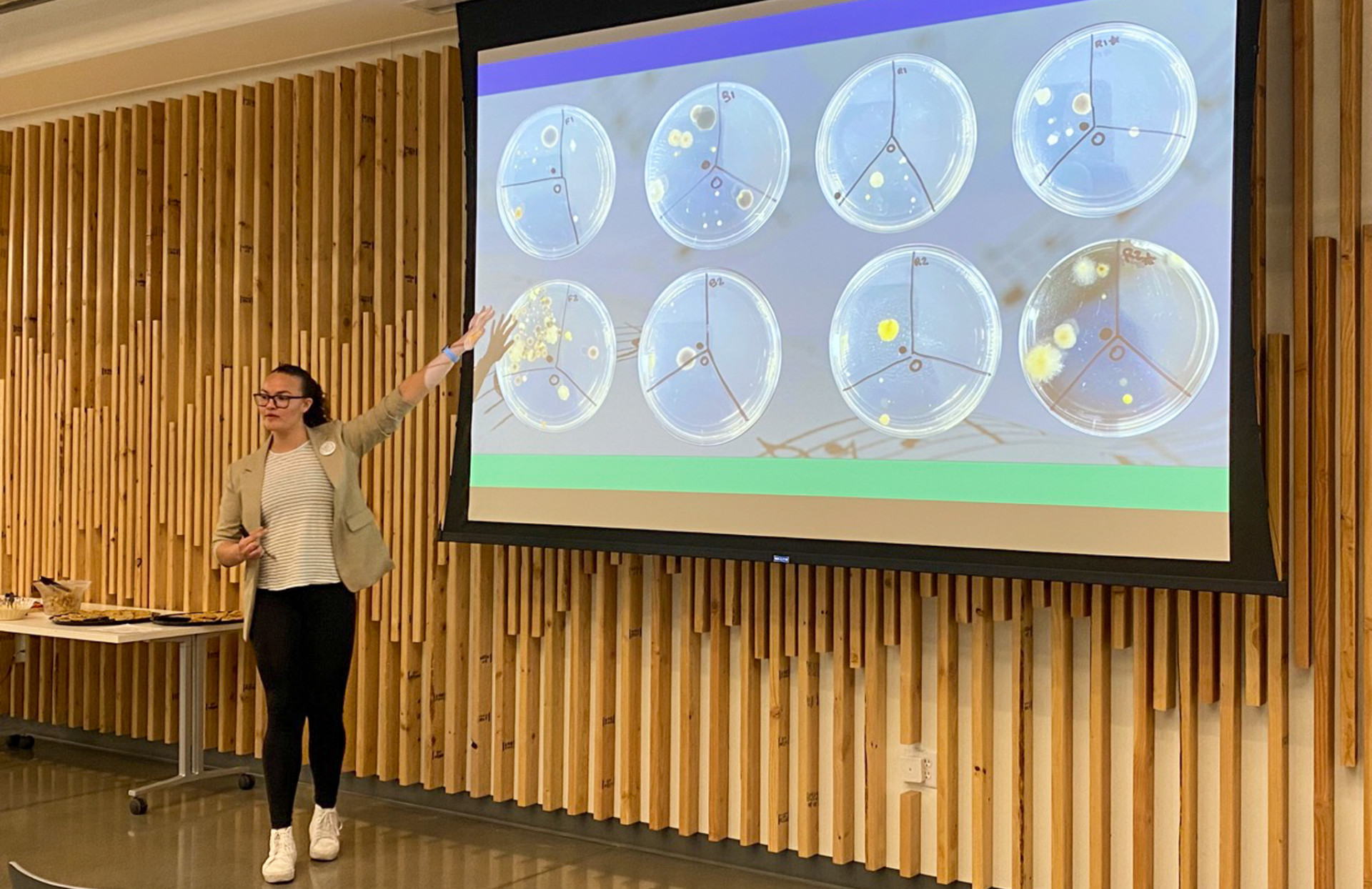
Colorado State University students presented independent research projects they conducted this semester at the Office for Undergraduate Research and Artistry’s TILT OURA Lab Showcase on April 25.
Students had creative autonomy over their projects, which ran the gamut from measuring bacteria growth on different water bottle materials to DNA testing for genetic diseases to the safety — or lack thereof — of fermenting kombucha.
Housed within the The Institute for Learning and Teaching, the TILT OURA Lab was created to equip early-career CSU students with the laboratory and research knowledge they need to advance their scientific careers.
Following a flexible curriculum, graduate lab assistants train mostly first- and second-year students on a variety of lab skills before the students conceive and conduct solo projects. In addition, undergraduate learning assistants lead weekly small groups with the students to work on nonlab-specific skills, like abstract writing, community building and how to translate OURA Lab learning into other experiences.
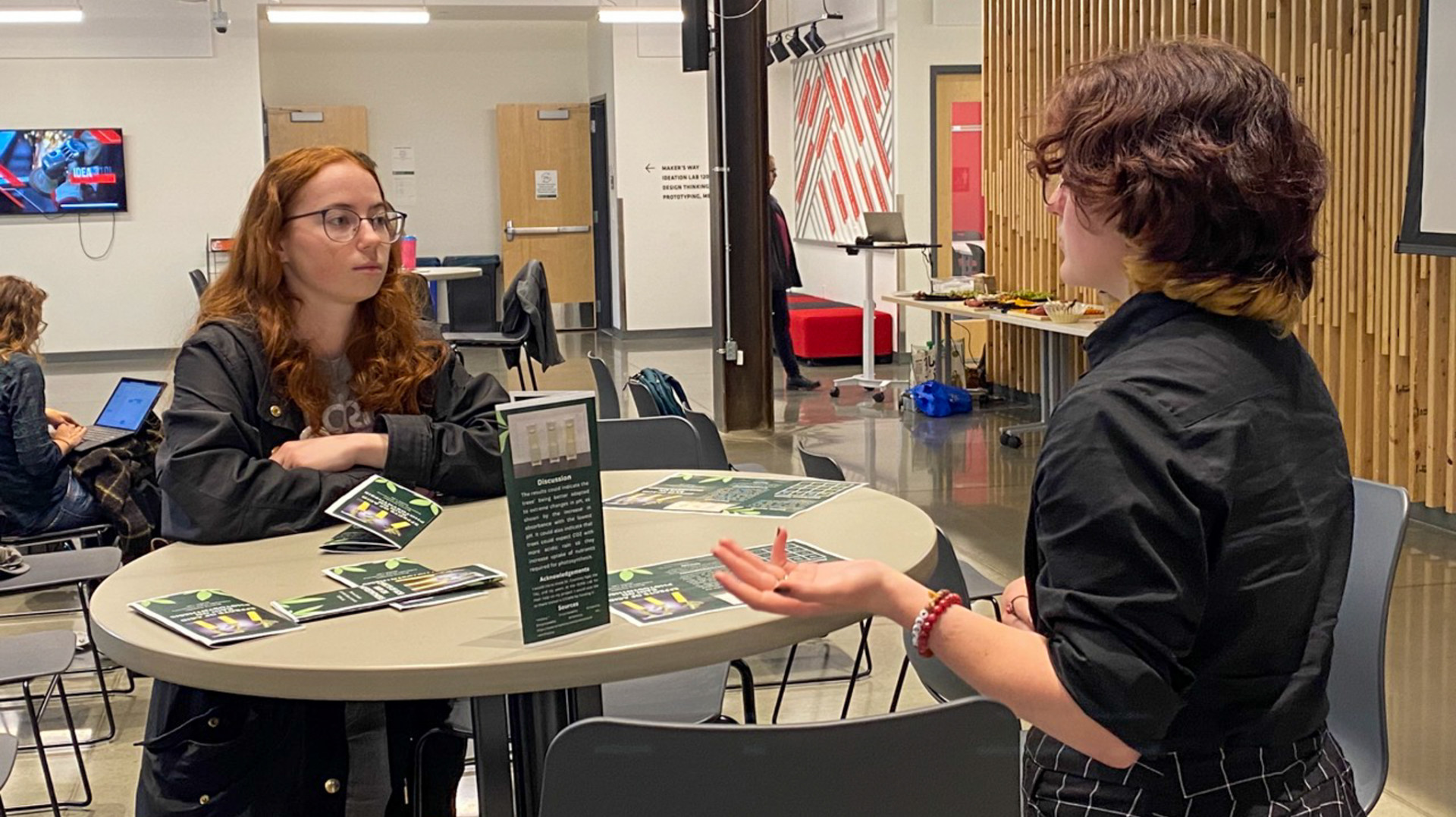
Building confidence
“The overall goal for the OURA Lab is to support students in gaining confidence in the lab and research and to feel empowered to continue doing research at CSU and beyond,” OURA Associate Director Courtney Ngai said. “A lot of first- and second-year students have never been in a lab or done research before, and we really want to be that on-ramp for students into additional experiences outside of the OURA Lab.”
In collaboration with United in STEMM, the OURA Lab was designed to support underrepresented students in science, technology, engineering, mathematics and medicinal fields. Through funding from OURA and the Student Success Initiative, OURA Lab students are paid for their time in the lab up to six hours per week, and all the necessary materials for the lab’s curriculum and the students’ projects are provided at no cost to the students.
“We recognize that finances are a huge barrier to getting undergraduate research experience, so we wanted to make sure that students got paid to be in the lab for this time,” Ngai said. “It’s very beneficial for students to participate in a research experience long-term, so we’re trying to gear them up so they feel prepared for it.”
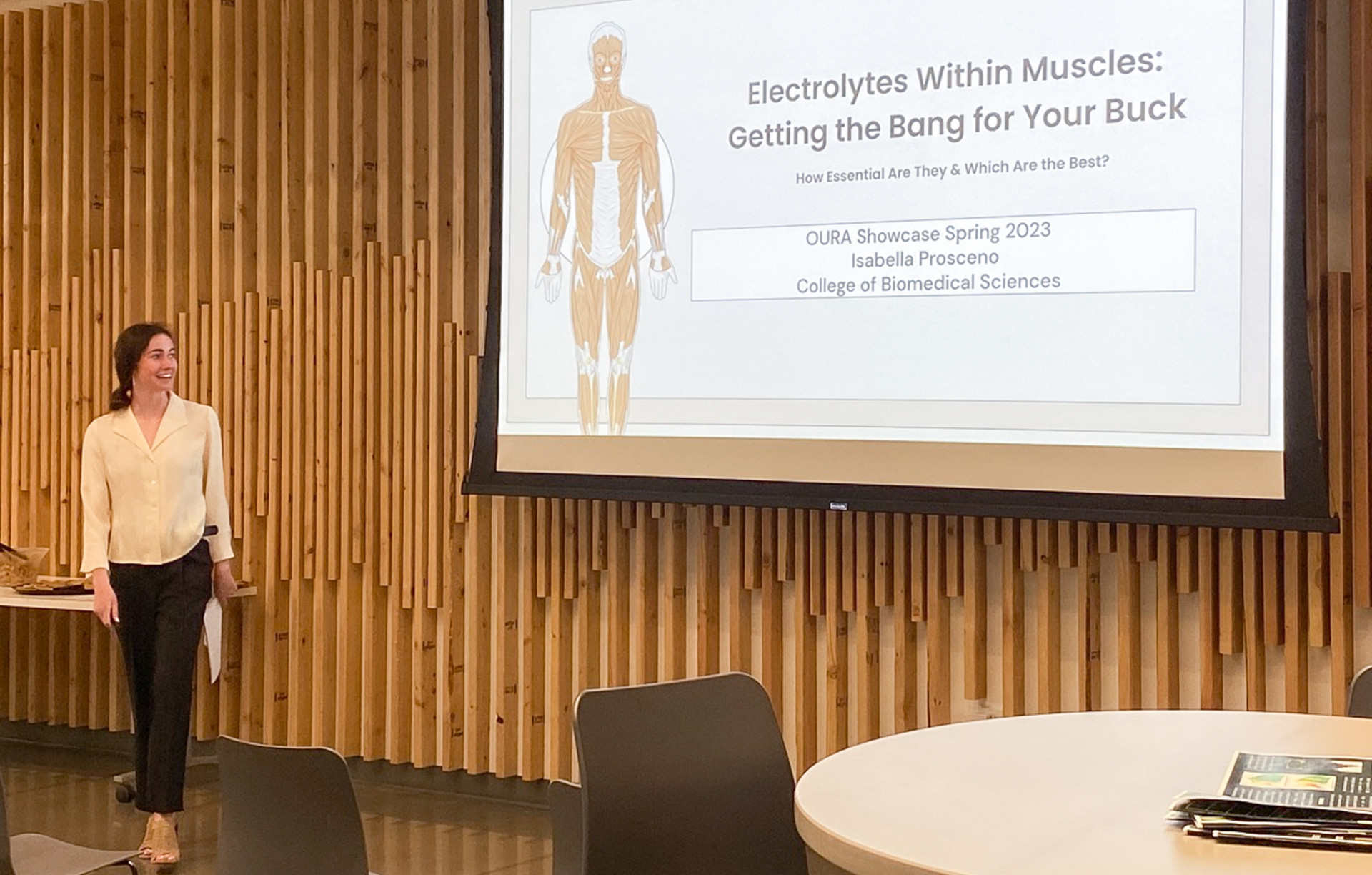
Room for failure
With no grades and a supportive community, failure is considered a step toward achieving success in the OURA Lab. In the OURA Lab showcase, several students freely admitted that areas of their projects were deemed inconclusive or outright ruined by personal error or other causes. They then explained what those issues taught them and exactly how they plan to better their scientific processes in future endeavors.
“We want the OURA Lab to be an opportunity for students to try things, make mistakes, and then revise and try again,” Ngai said. “You can’t get that in a classroom. This is more like authentic research in a lab, where nothing’s going to work out the first time around; you’re always going to have to troubleshoot. That’s what we’re trying to model.”
Rayia Adams, a first-year biochemistry student in the OURA Lab, had to disregard an entire data set of her project due to issues incurred while collecting samples. She said the experience gave her a new perspective on making mistakes and what they can teach you.
“I learned a lot from this project — there are so many things I’d like to do differently,” Adams said. “One thing the OURA Lab has done is make me more confident in my ability to learn things and also realize that failure isn’t necessarily a bad thing. It’s good to realize your faults and where you can improve.”
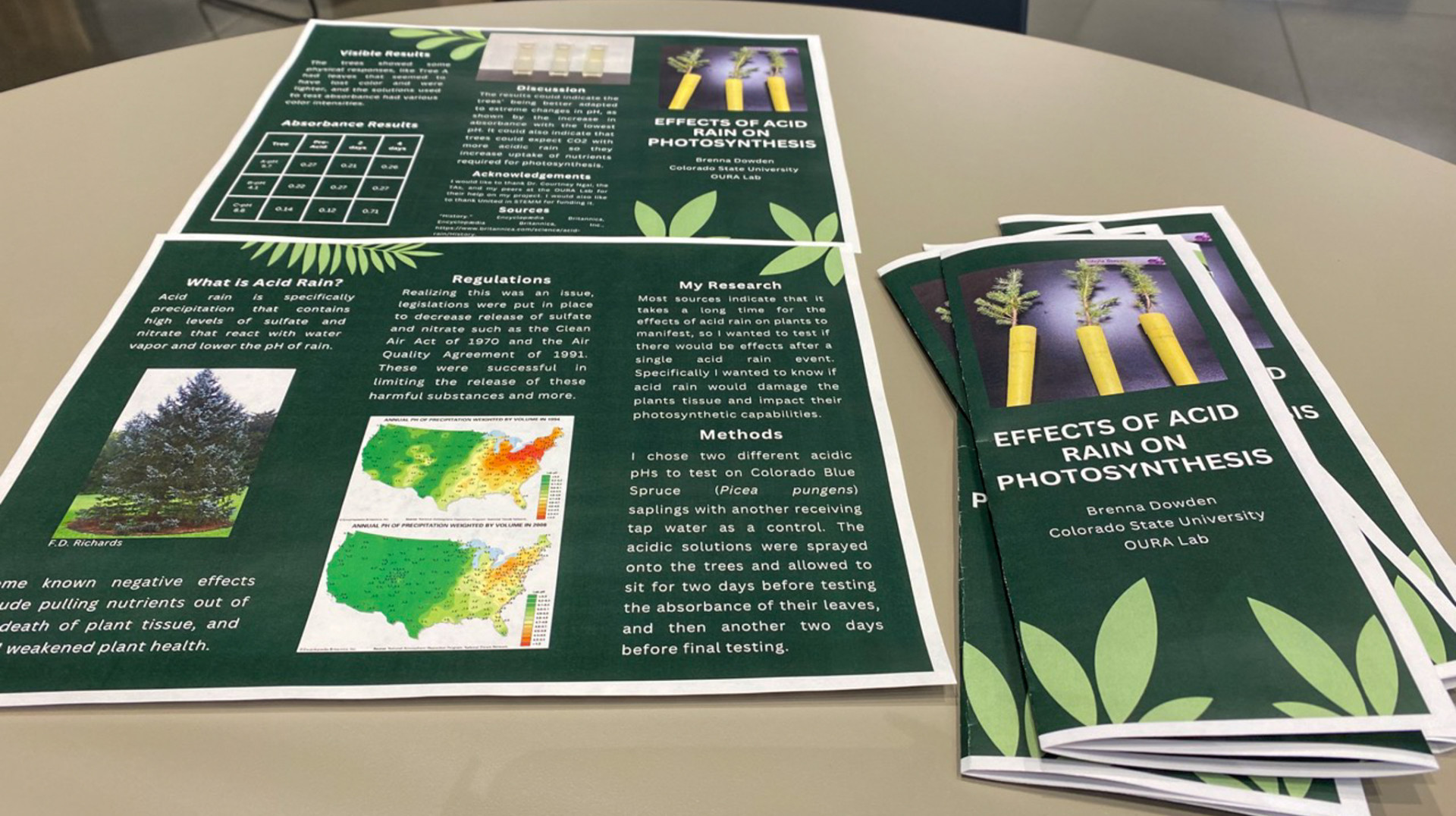
Kickstarting careers
The OURA Lab’s flexible, skill-based curriculum allows students to advance through learning activities at their own pace, whether they need extra time to master a task or are ready to move on quickly. The lab is meant to build strong foundations of laboratory and research knowledge for students through its focus on skill building, independent projects and project presentations, which will aid students as they look for more advanced research opportunities.
Macy Gruszczynski, a second-year biochemistry student in the OURA Lab, said she believes she was chosen for a summer lab internship because of her experiences gained through the OURA lab, specifically presenting at the Multicultural Undergraduate Research Art and Leadership Symposium.
“I would never have done MURALS outside of the OURA Lab,” Gruszczynski said. “I was able to create a poster and presentation and actually present on my topic, and that prepared me. Having that knowledge and mastering and feeling confident with all the basic lab essentials helped me. I think that if I didn’t do the OURA Lab, I wouldn’t have gotten the internship.”
In addition to improving personal marketability, the OURA Lab aspires to help students feel self-assured of their research-related abilities.
“I definitely feel more confident working in a lab setting and a work setting in general,” said Caley Kling, first-year cell and molecular biology and genetics student in the OURA Lab. “I think the OURA Lab’s experiences will really help me to do well in the workplace in the future.”
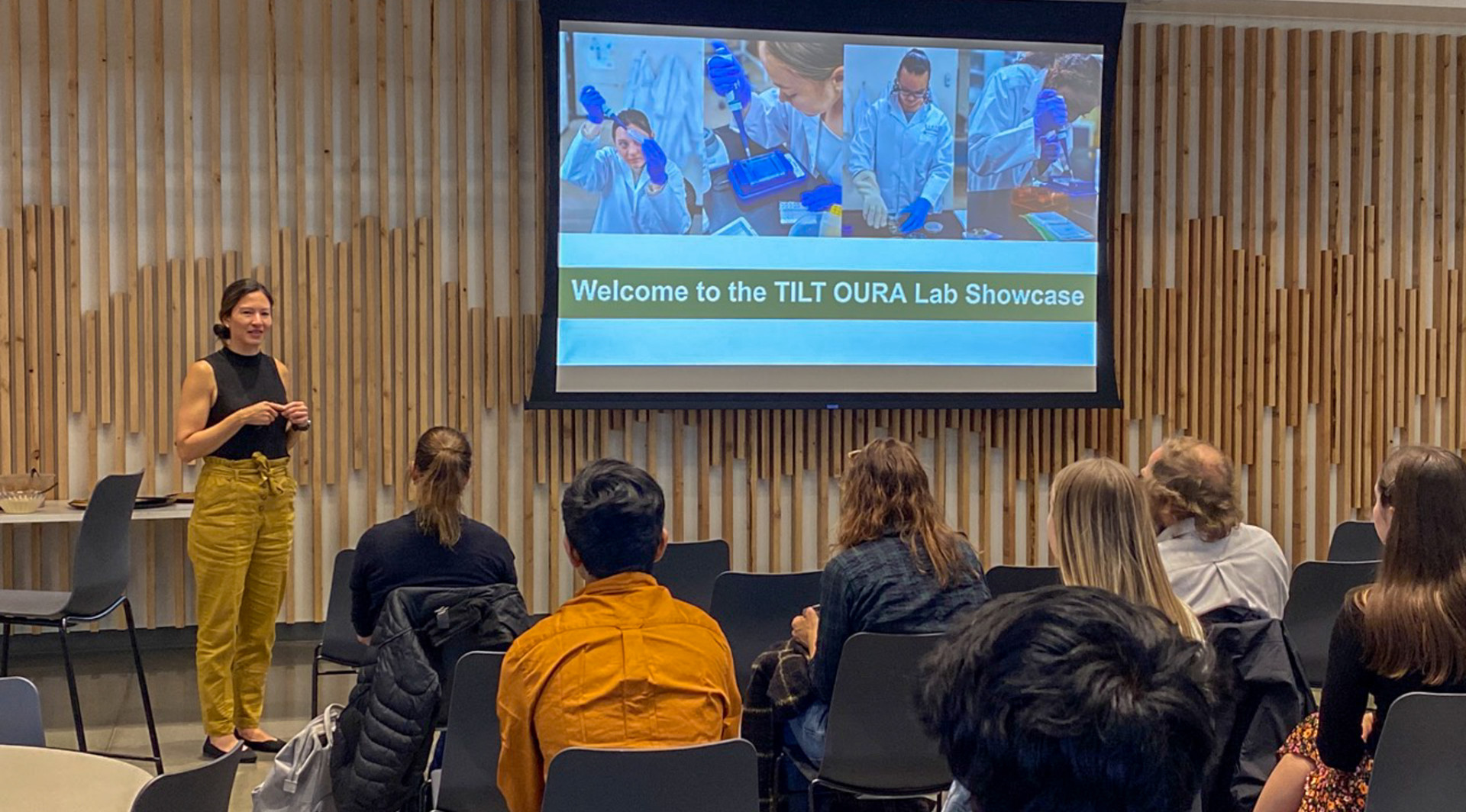
Getting involved with the OURA Lab
The OURA Lab supports two cohorts of students for six weeks each in fall semesters and one cohort for 12 weeks in spring semesters, with about 25 students in each cohort. No lab or research experience is required to join the OURA Lab.
Application information for the OURA Lab’s fall 2023 cohorts, graduate teaching assistant teams and undergraduate learning assistant teams will be posted on Handshake in late July, and the listings will also be accessible through the OURA Lab’s webpage. Spring OURA Lab recruitment is conducted in collaboration with UiS.
“The OURA Lab is a great experience, and other students should really try to join this program,” Kling said. “They would be able to learn how to be in a lab setting and get the experience they need to get hired into a more official lab.”